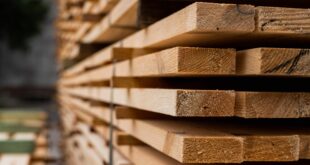The lumber starts out as timber in Russian forests, where endangered tigers and leopards live – then the wood is stolen, taken to China and sold to Western companies that make furniture and flooring.
Companies such as Lumber Liquidators, the flooring discounter headquartered in Virginia, were among those Western buyers.
Lumber Liquidators was something of a pioneer for the U.S. when it came to being prosecuted for wildlife crime connected to lumber. The company’s recent conviction may set a precedent for dealing with companies that engage in buying trafficked wood and contributing to the destruction of natural resources in other countries, according to National Geographic magazine.
The company was recently convicted of violating the Lacey Act, which prohibits buying stolen wildlife and plants, and fined $13 million. That dollar amount is the highest ever issued for a violation of the Lacey Act, which has been in place for 115 years, National Geographic says. Lumber Liquidators was also the first U.S. company ever convicted of a timber-related felony under the Lacey Act, the article adds.
The company pleaded guilty in federal court for “buying wood that had been illegally harvested in the forests of the Russian Far East,” where “Illegal logging has disrupted life in the region and threatened the survival of the endangered Siberian Tiger and the Amur leopard,” according to National Geographic.
Buying and selling wood that was logged illegally has far-reaching impacts elsewhere in the world.
Illegal logging in Russia is destroying the habitats of leopards and tigers, but also causes “damaging ripple effects,” such as eliminating nesting locations for birds and reducing the food supply for wild boar and deer, the article says.
That, in turn, impacts thousands of local people who “rely on the forests for everything from traditional medicines to beekeeping and the harvesting of pine nuts. They also hunt forest animals such as elk and boar for food,” the article says.
This 2013 case is unrelated to an ongoing federal investigation into whether Lumber Liquidators sold flooring that contains unsafe amounts of formaldehyde.
 Hardware Retailing The Industry's Source for Insights and Information
Hardware Retailing The Industry's Source for Insights and Information






